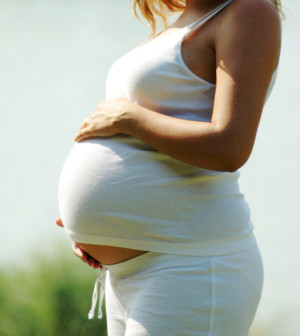- Could Your Grocery Store Meat Be Causing Recurring UTIs?
- Are You Making This Expensive Thermostat Error This Winter?
- Recognizing the Signs of Hypothyroidism
- 10 Strategies to Overcome Insomnia
- Could Artificial Sweeteners Be Aging the Brain Faster?
- Techniques for Soothing Your Nervous System
- Does the Water in Your House Smell Funny? Here’s Why
- Can a Daily Dose of Apple Cider Vinegar Actually Aid Weight Loss?
- 6 Health Beverages That Can Actually Spike Your Blood Sugar
- Treatment Options for Social Anxiety Disorder
Too Many U.S. Babies Still Delivered Early Without Medical Need


More than three percent of U.S. babies are delivered early without a medical reason, a new study finds.
“Our study showed that early elective deliveries made up more than 3 percent of U.S. births each year over the past 20 years. This may seem to be a small number, but with 4 million births a year in the U.S., each percentage point represents 40,000 babies,” study leader Katy Kozhimannil, an assistant professor in the University of Minnesota School of Public Health, said in a university news release.
A baby is considered full-term at 39 weeks. Early delivery without medical reasons (early elective delivery) at between 37 and 39 weeks is associated with health problems for mothers and babies, according to the researchers.
They analyzed data for all births in California, Missouri and Pennsylvania between 1995 and 2009 in order to determine the percentage of early elective induced labor and cesarean deliveries. The three states represent 20 percent of all U.S. births.
“In addition, we showed that there are important sociodemographic differences in the chances a pregnant woman has an early elective cesarean or an early elective induction of labor,” she added.
Women most likely to have early elective induced labor were: 35 or older, white with higher levels of education, privately insured, and gave birth in rural or non-teaching hospitals.
Those most likely to have early elective cesareans were: younger than 20 and older than 35, black, more highly educated, and gave birth at smaller-volume hospitals, according to the study published in the July issue of Medical Care.
The study also found that babies delivered by early elective cesareans were 60 percent more likely to stay longer in the hospital and more than twice as likely to have respiratory distress than infants born at full-term. Infants delivered after early elective induced labor were also more likely to stay in the hospital longer than normal.
“There are misunderstandings about when a baby is ready to be born,” Kozhimannil said. “Since our findings show there are differences in who is having an early elective delivery, the importance of a full-term birth needs to be communicated to all women, not just those who may traditionally be considered high risk for elective procedure or high risk for poor outcomes.”
More information
The U.S. National Institutes of Health has more on delivery timing.
Source: HealthDay
Copyright © 2026 HealthDay. All rights reserved.










